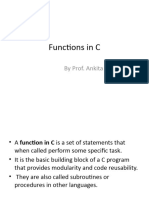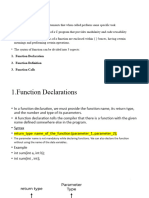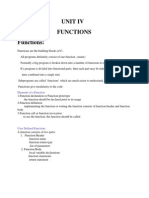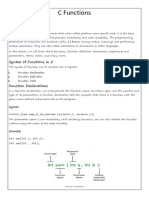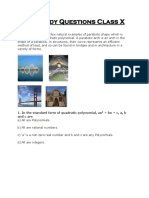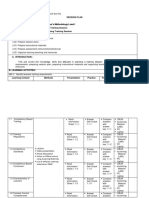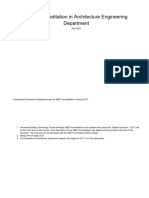0% found this document useful (0 votes)
29 views38 pagesC Function
The document provides an overview of C functions, explaining their structure, uses, and how they enhance code reusability and organization. It covers function declaration, definition, and calling methods, including call by value and call by reference, along with examples. Additionally, it discusses the scope of variables and the differences between local and global variables.
Uploaded by
parekhurvi340Copyright
© © All Rights Reserved
We take content rights seriously. If you suspect this is your content, claim it here.
Available Formats
Download as PDF, TXT or read online on Scribd
0% found this document useful (0 votes)
29 views38 pagesC Function
The document provides an overview of C functions, explaining their structure, uses, and how they enhance code reusability and organization. It covers function declaration, definition, and calling methods, including call by value and call by reference, along with examples. Additionally, it discusses the scope of variables and the differences between local and global variables.
Uploaded by
parekhurvi340Copyright
© © All Rights Reserved
We take content rights seriously. If you suspect this is your content, claim it here.
Available Formats
Download as PDF, TXT or read online on Scribd
/ 38





